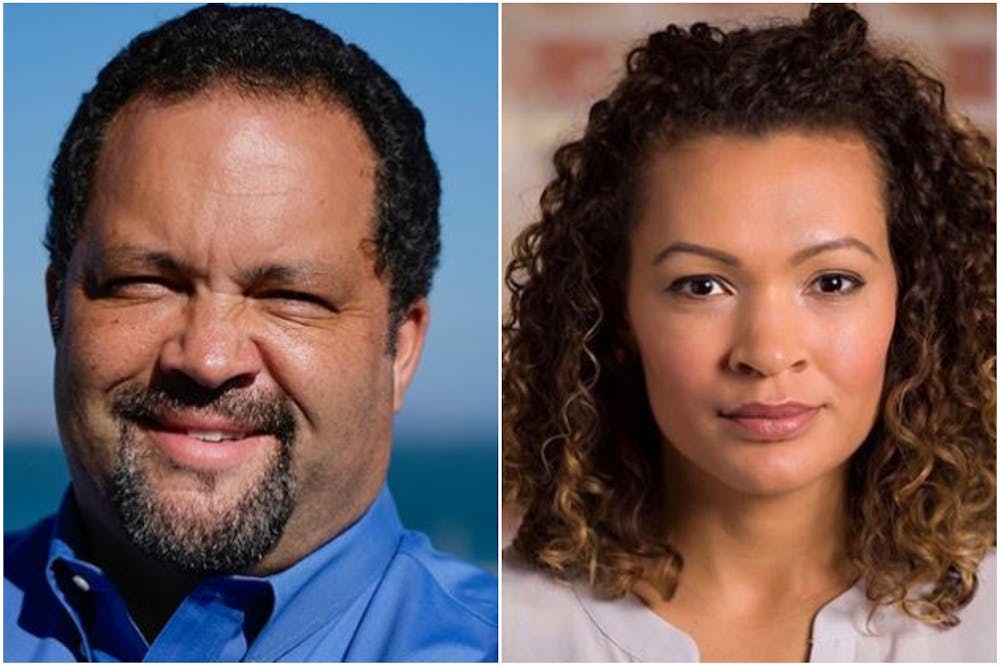
Former NAACP President and Annenberg Visiting Scholar Ben Jealous and Penn professor Sarah J. Jackson spoke about the history and importance of digital activism at a virtual conversation on race hosted by the Annenberg School for Communication.
At the Friday event, titled "Race, Social Justice, and Social Media," Jealous and Jackson discussed how activism through channels like social media can shape public discourse, opinion, and policy on issues of social justice.
The event was the first in a new series of events at the Annenberg School, called Annenberg Conversations, that connects speakers from Annenberg with leading individuals in various fields. This academic year, the Annenberg Conversations will cover race, examining anti-Black racism in society.
Jealous said his first experience with digital activism was when he helped create a social media campaign to save Troy Davis, a Black man convicted of murder amid evidence he may be innocent, from execution in 2011. Jealous used the hashtag #TooMuchDoubt to increase awareness of Davis's conviction and sentence. Although the campaign was successful in drawing attention to the case, Davis was executed on Sept. 21, 2011.
Jackson said much of the early success of digital activism was due to the early presence of journalists and other media-makers on Twitter who used the platform to introduce important topics to mainstream political discourse.
Over the years, conservative and far-right voices have joined these digital spaces in droves, increasing their influence over discourse, Jackson said. Digital spaces have only become more influential as they grow more crowded, Jealous said. The echo chamber effect on social media, facilitated by extremist politics, is a driver of political polarization.
Many activists feel pessimism and fatigue over the level of racism, misogyny, homophobia, and transphobia present in current discourse, Jackson said.
“You get your faith from the fact that the other side is fighting so viciously,” Jealous said. “What it means is that they know what you know, which is a better future is coming. And all they can hope to do is slow it down.”
The proliferation of hate speech on digital media platforms has prompted widespread criticism of big companies like Facebook. Civil rights leaders have alleged that Facebook has been a facilitator of political polarization and has given a platform to white supremacists and other hate groups.
Although digital activism is often associated with social media, television remains the largest source of news information for Americans, Jackson said.
Jackson was named an Andrew Carnegie Fellow earlier this year, receiving research funding to investigate the role of Black storytellers and media-makers in the 21st century. She was also recently appointed co-director of Annenberg's Media, Inequality, and Change Center, a joint venture between Annenberg and Rutgers University's School of Communication and Information.
The Daily Pennsylvanian is an independent, student-run newspaper. Please consider making a donation to support the coverage that shapes the University. Your generosity ensures a future of strong journalism at Penn.
Donate



